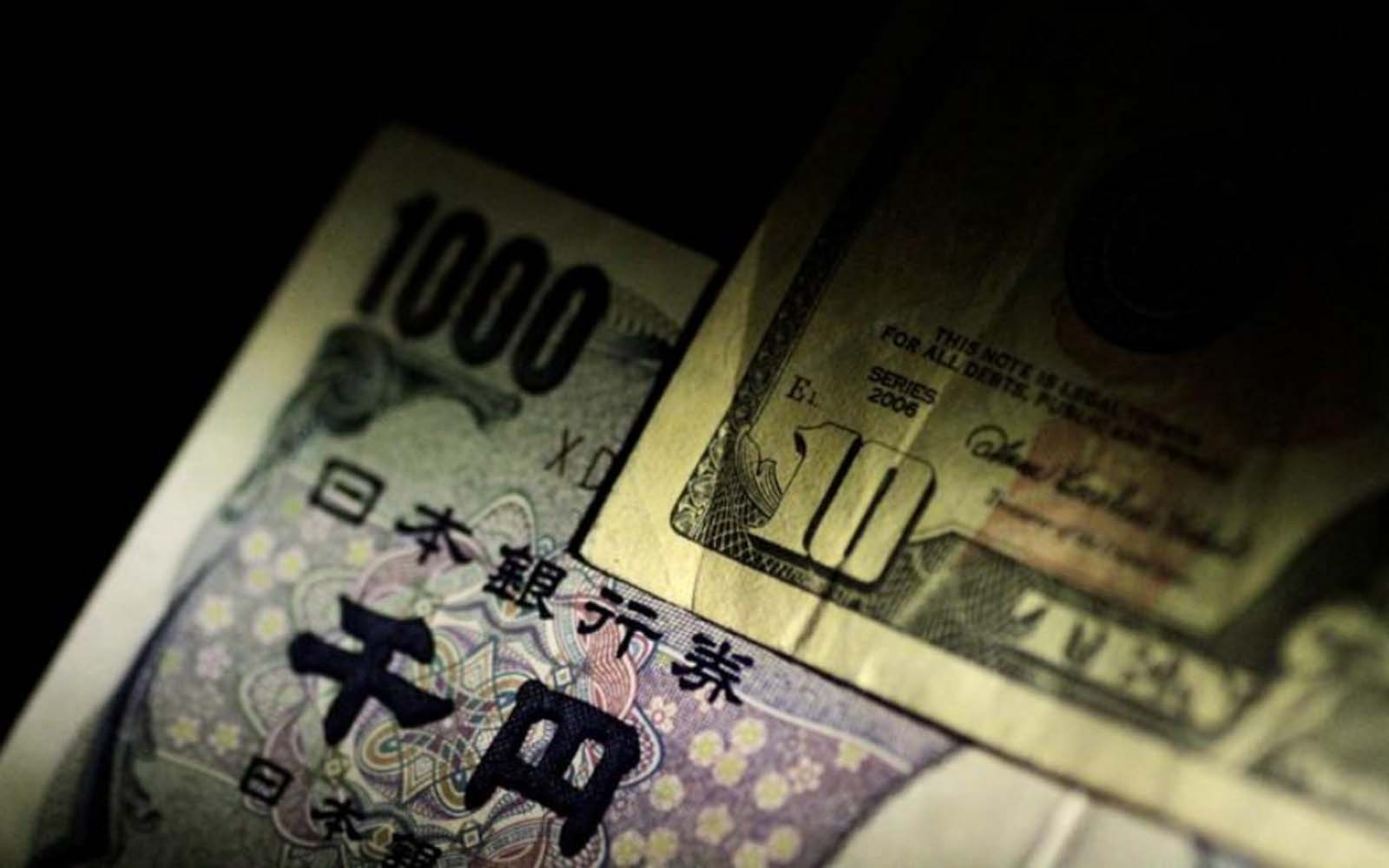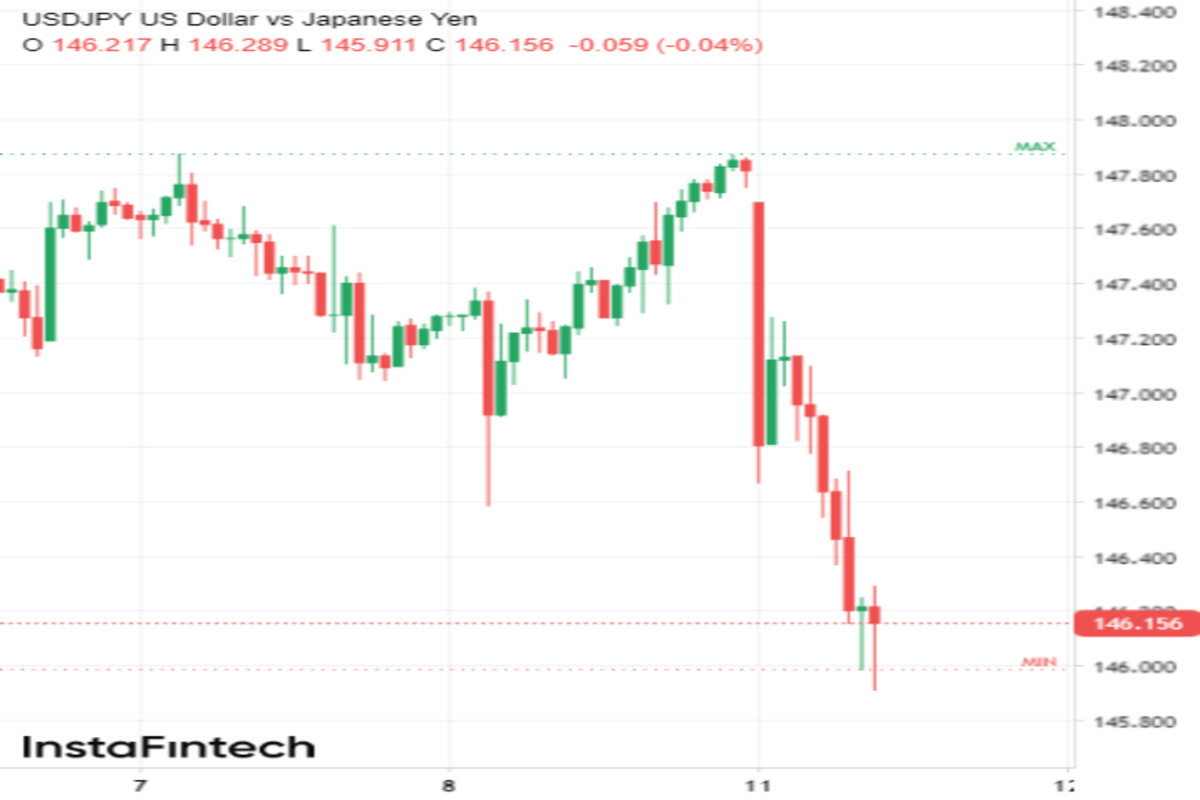
The yen stormed into the new trading week, showing a strong acceleration against all major currencies, with the most notable rise against the US dollar. Let's dissect the reasons behind this JPY rally and its potential duration.
BOJ hints at a hawkish turn
The bullish momentum that the USD/JPY pair enjoyed throughout the past week abruptly ended this Monday morning, with the pair plunging by over 1% to 146.15.

Just a week ago, the pair reached a 10-month high of 147.87, driven largely by hawkish market sentiment concerning the future monetary policies of the Federal Reserve.
Currently, while a majority of traders anticipate a pause in interest rate hikes at the upcoming FOMC meeting in September, the market is not completely ruling out further tightening in the US.
Robust economic data released last week has heightened the likelihood of another rate hike in the US this year, reinforcing the belief that the Federal Reserve might sustain a high rate for an extended period.
Given these dynamics, the dollar evidently enjoys strong support. So, what caused the USD/JPY pair to fall at the start of this week?
The significant catalyst behind the decline can be traced back to a Saturday interview with the Bank of Japan's Governor, Kazuo Ueda, given to the Yomiuri publication. Traders perceived his remarks as distinctly hawkish.
In his conversation, Ueda noted that the BOJ might abandon its ultra-loose monetary policy once there are signs of inflation approaching the 2% target.
"If we witness sustainable price increases, accompanied by wage growth, we won't have to wait for inflation to reach the target. Our inflation goal might be achieved even after we depart from negative rates," Ueda explained.
Ueda mentioned that the central bank would have sufficient data by the end of the year to decide whether they can begin normalizing their monetary policy.
Such statements reintroduced speculation that the BOJ might soon embark on the path of monetary tightening. This resulted in a spike in the yield of Japanese government bonds.
This morning, the yield jumped by 5 basis points to 0.7% — the highest since January 2014 — serving as a robust springboard for the yen.
A further strengthening of hawkish market expectations concerning the BOJ's monetary policy may bolster the Japanese currency. This could potentially lead to even more weakening of the USD/JPY pair in the near future.
"In light of recent events, our forecast concerning the Bank of Japan has shifted. Presently, we anticipate the regulator to abandon its negative interest rate policy within the first three months of 2024, leading to a pronounced surge in the yen against the US dollar," said Takeshi Ishida, currency strategist at Resona Bank.
Ueda's cunning move
However, not all experts share this optimism towards the yen. Some of them believe that USD/JPY might resume its upward trajectory once the market's emotional turbulence calms down.
The yield of US 10-year treasury bonds is currently about 360 basis points higher compared to the Japanese bonds. With such a vast disparity, the yen might struggle to maintain its victory over the US dollar, particularly as its recent gains are based on mere speculation rather than evidence.
No matter how hawkish he sounded in the recent interview, Ueda still reiterated his dovish stance. The official emphasized that the BoJ will maintain its ultra-loose stance in the foreseeable future as there is no discernible evidence of Japan nearing its inflation targets.
Recent data revealed that the wage growth rate for Japanese workers unexpectedly slowed down in June. This suggests a cooling labor market, casting a shadow over the BoJ's objectives regarding stable prices.
According to Kiesi Ishigane, an analyst at Mitsubishi UFJ Kokusai Asset Management, "the Bank of Japan currently has no basis to move towards normalizing its monetary policy. While it might end its yield curve control policy this year, this unlikely signifies a retreat from negative rates. We suspect Ueda's hawkish comments were mainly aimed at bolstering the flagging yen."
A similar view is held by his colleague, Naomi Muguruma. She believes Ueda's hawkish rhetoric was strategically employed to prevent further devaluation of the Yen, especially when Tokyo cannot feasibly intervene in the currency market.
"The yen's decline this year is markedly less than it was last year, indicating that its current depreciation is not purely speculative, complicating potential interventions in purchasing the Japanese currency," noted Muguruma.
A majority of analysts recommend that traders of the USD/JPY pair stay cautious and await key macroeconomic releases from the US this week, specifically, the Consumer Price Index report on Wednesday, followed by the Producer Price Index (PPI) and retail sales data on Thursday.
If the data turns out to be strong, the US dollar will likely receive a boost. With growing hawkish expectations regarding the Federal Reserve's policy, it wouldn't be surprising to see the greenback regaining its recent highs against the yen.
 English
English 
 Русский
Русский Bahasa Indonesia
Bahasa Indonesia Bahasa Malay
Bahasa Malay ไทย
ไทย Español
Español Deutsch
Deutsch Български
Български Français
Français Tiếng Việt
Tiếng Việt 中文
中文 বাংলা
বাংলা हिन्दी
हिन्दी Čeština
Čeština Українська
Українська Română
Română

